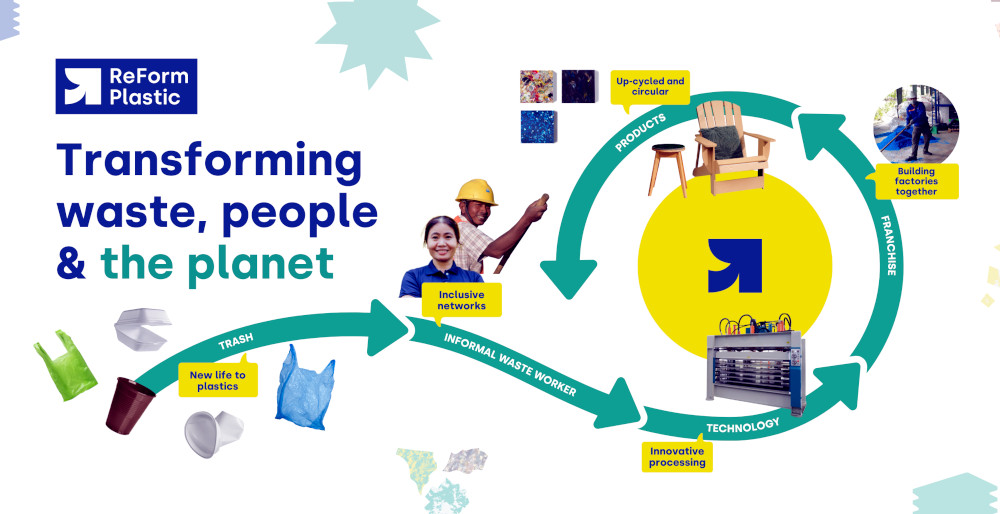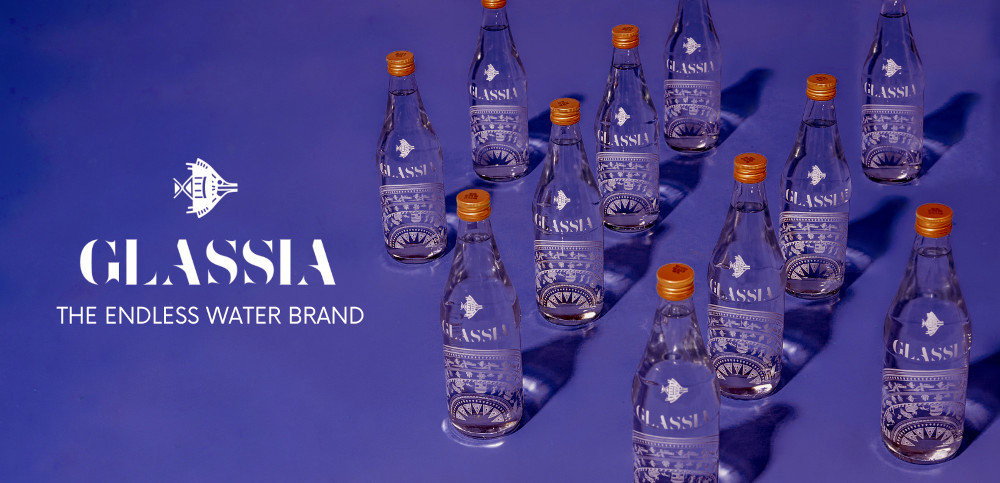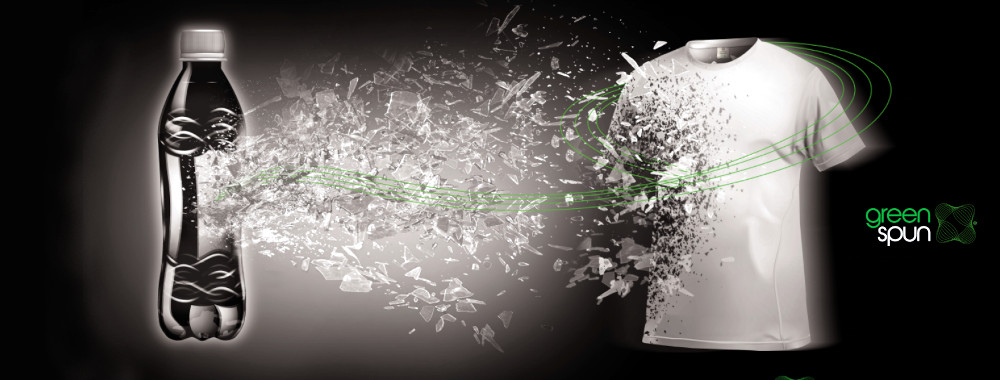It’s no secret that
plastic,
particularly the single-use kind, has been polluting the planet in a plethora of
ways.
Here, we focus on the entrepreneurial endeavors that are emerging to genuinely
address the problem — and considering the needs of some of the world’s most
vulnerable populations in the shift to a better planet.
ReForm Plastic
 Image credit: ReForm Plastic
Image credit: ReForm Plastic
Based in Da Nang, Vietnam, ReForm Plastic is a
social enterprise that offers upcycling technologies to tackle the problem of
hard-to-process plastics — transforming them into products that can be used by
the construction and furniture industries.
But ReForm Plastic is doing more than just turning plastic waste into useful
products — it is creating new economic opportunities for local communities by
way of its social-franchising model.
“We offer complete support to our partners, ranging from feasibility assessments
to installation and trial production at the factory. We have already installed
or have in operation 14 social-franchise factories across South Asia and
Africa — demonstrating that we are not just talking, but also taking
action,” co-founder Jan Zellmann ,
whose mission is “building impact ventures with a focus on decentralized
operations for the greater good of the environment and society,” told
Sustainable Brands®. “Moreover, we are ensuring our partners develop
sustainable social-plastic collection
schemes
that provide informal collectors access to better equipment, healthcare, and
improved livelihoods through better material access.”
Additionally, ReForm Plastic is integrating informal waste
workers
into its system to increase the company’s social impact.
Zellmann explained how the company’s social initiative, The Collector
Network,
“is designed to empower local, informal waste collectors by providing them with
training, access to healthcare, recognition from the government, livelihood
improvement opportunities through more effective collection, and other
supportive services.”
Glassia
 Image credit: Glassia
Image credit: Glassia
Although there has been debate over which material has a more profound impact on
the environment, plastic or
glass,
the latter has some major advantages over the former — including the fact it can
be reused and recycled for a seemingly endless amount of times.
Another Vietnam-based enterprise, co-founded by the same team behind ReForm Plastic, Glassia has created a refillable-packaging system for bottled water.
Zellmann emphasizes that “with the ever-increasing use of single-use plastics,
it's critical that upstream innovation is adopted to reduce plastic usage at its
source. One of the most effective ways to achieve this is through circular
packaging models, such as refill and reuse
systems.”
According to Zellmann, Glassia is the only social enterprise in Vietnam that
focuses on creating sustainable refill systems — a display of how circular
systems “can be implemented on a large scale and are pioneering the production
and promotion of plastic-free bottled water, using purified water in reusable
glass bottles.”
Venturing beyond the reuse of packaging, Glassia has established multiple refill
facilities across Vietnam — which helps reduce greenhouse gas emissions from
transport while also keeping costs down.
Zellmann added that his company’s “Danang decentralized refill facility,
established in 2021, revolutionized single-use plastic bottling with a circular
model. We launched our second refill site in Ho Chi Minh
City
in early 2023, with a third one set to launch in late 2023. We aim to enable
local refilling across Vietnam for accessible, affordable, sustainable products
in every city and region.”
DGrade
 Image credit: DGrade
Image credit: DGrade
Founded by Kris Barber — an
apparel-industry vet who served as Director at Dirtball
Fashion,
a startup whose offerings included jeans made from cotton and recycled plastic
bottles — in 2010, Dubai-based DGrade turns discarded
plastic bottles into clothes.
“More than 1.3 million plastic bottles are produced every day worldwide. Plastic
consumption must be reduced; but as plastic is one of the most practical,
cost-effective options, quantities will continue to be produced — so, we must
find a way to deal with it,” Barber told SB.
DGrade offers an additional solution to the world’s plastic-waste issue by
upcycling it into Greenspun™ yarn to make
uniforms, clothing and accessories. Barber proudly states that the production of
Greenspun uses no oil — which is a finite resource — and “saves 55 percent CO2
emissions, 50 percent energy, and 20 percent
water”
compared to conventional production of virgin polyester yarn.
Besides making plastic trash into something much more useful than landfill and
ocean fodder, the startup brings communities together by way of its
#SimplyBottles recycling
initiative — which, Barber
says, “works with hundreds of businesses, schools and events to educate people
about plastic pollution and recycling.”
“The plastic we collect through Simply Bottles is recycled into flakes and
supplied to packaging manufacturers to support a circular economy.”
DGrade goes even further by addressing the environmental impact of the very
product into which they convert plastic bottles.
“Another key goal we have is to supply quality products made sustainably, that
can be worn over and over again. We do not promote consuming more but rather
offer a sustainable alternative to companies already purchasing uniforms and
other such items,” Barber adds.
Southeast Asia and the Middle East are emerging as incubators for
plastic-diversion innovations; and — beyond putting a serious dent in plastic
pollution — they are involving local communities, helping to reduce poverty, and
making a circular economy the wave of the present instead of the future.
Get the latest insights, trends, and innovations to help position yourself at the forefront of sustainable business leadership—delivered straight to your inbox.
Roberto Guerra is a bilingual writer, editor, entrepreneur, corporate engagement and communications specialist, and US Air Force veteran with a bachelor’s degree in Journalism from Universidad de la Sabana (Bogota, Colombia) and an International Master in Sustainable Development and Corporate Responsibility from EOI Business School (Madrid, Spain). Born in New York and raised in Florida, Roberto is former managing director for the Spanish-language version of vegan business magazine "vegconomist" and is also author of three novels. He has lived, worked and studied on four different continents.
Published Feb 1, 2024 8am EST / 5am PST / 1pm GMT / 2pm CET